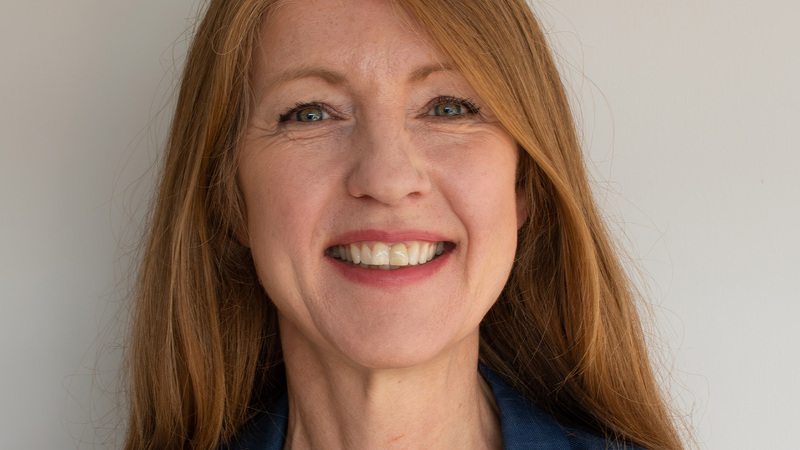You are viewing your 1 free article this month. Login to read more articles.
Fallon admits 'we got it wrong' as Pearson shares plunge
Pearson's c.e.o. John Fallon has been forced to defend his position after admitting the company "got it wrong" last year, resulting in revisions to its 2017 forecast and dividend yesterday (18th January), and the withdrawal of its ambitious £800m profit target for 2018.
Shares dived by almost 30%, wiping nearly £2bn from its stock market value when Pearson released a profit warning in its January trading update yesterday morning, blaming "uncertain and challenging markets" for starting the year £180m below expected profitability. At the same time, it announced it wanted to sell its 47% stake in trade publisher Penguin Random House.
According to Fallon, the company firstly underestimated declines in college enrolments, caused by both economic and policy-related factors, and secondly, while enrolments were down, it didn't anticipate that the revenue per enrolment, which was "very, very steady for years", to drop "suddenly" in 2016. On top of this, a further threat to the business has emerged from a "worse than anticipated" rise in textbook rentals.
"We got two big calls wrong last year, along with many other people," said Fallon in a call with media. "We thought college enrolments had stabilised and they didn't; we had seen revenue per enrolment stable for years and we thought that would continue, and that didn't either.
“This is a tough time for the company, we have to move urgently and decisively. All I and the rest of my team is focusing on is getting on with delivering the plan we agreed with the board yesterday and which we shared with the market this morning."
He added: "I am accountable, I fully accept that accountability, the fact we got those things wrong last year. I am also accountable for leading the company through what is a far more difficult period than anyone could have imagined, and I don't have time to do anything else other than to focus on what the board has asked me to do, and that's what I'm going to carry on doing."
Assuming that the downward pressures on its North American education business would continue, Pearson said it would be accelerating its shift to digital. This will include launching its own print rental program for courseware and reducing e-book rental prices by up to 50%. With an additional £50m investment, the company plans to simplify its product technology platform and enhance its courseware service capabilities accelerating its "product roadmap" by two years and driving faster adoption of institution-wide digital access to Pearson courseware.
Fallon said the company had a "significant technology deficit" only a few years ago and that its accelerated transition to digital would make the business "more reliable".
"A business that is 75% digital is a more reliable, repeatable, secure business to grow and we've got to get on and do that as quickly we can," said Fallon, "But we have to acknowledge enrolments will continue to decline and the impact of the rental market will continue to increase; we are still going to be dealing with 5-6% underlying decline in demand in our biggest and profitable business for the next two years. There's no getting around it, and the single most important thing is to acknowledge that issue and to get on with getting to the future as quickly as we can."
Pearson announced during yesterday’s trading update that it would be selling its 47% stake in Penguin Random House to maintain a strong balance sheet, invest in the business and return excess capital to shareholders - a process that has begun by issuing an exit notice to its joint venture partner Bertelsmann, PRH's majority owner.
Pearson sought to reassure media that the move, if agreed, would not impact on PRH staff or authors in any way and that it was an “economic decision”, unrelated to the quality of PRH’s performance, of which Fallon said he was “proud”.
"I don't think it will have any impact on publishers or authors," said Fallon. "We are very proud of the brilliance of the publishing of Penguin and its commercial success. We are really pleased to see how much it has flourished and prospered. We have every confidence in Tom Weldon and Markus Dohle; I think they did a very good job of leading the business, so [the sale] is not related to that in any shape or form."
Pearson's decision to trigger its notice of exit is an economic one, said Coram Williams, chief financial officer for Pearson and a former c.f.o. for PRH, explaining that the time was right to sell in line with the opening of the contractual window to do so (the next opportunity would be in 2019). The stabilisation of the Penguin Random House business, following the completed integration between Penguin and Random House and the impact of e-book term negotiations levelling out, also make it a good time to sell the stake.
Williams said: "Penguin Random House is in very good shape...I think this is an economic decision on Pearson's part, which will not have an impact on Penguin Random House, which is a great company."
Bertelsmann has responded to the news by saying that it is “open” to increasing its stake in PRH. A further Q&A with Bertelsmann c.e.o. Thomas Rabe posted on the publisher's intranet emphasised the company’s interest in gaining shares had been “repeatedly expressed” and that it was fully “prepared” for Pearson’s exit notice.
Whatever the changes at shareholder level, it will have “no impact” on daily operations, Rabe said. He promised Bertelsmann would “do everything to guide this business to further growth."
"This applies to every conceivable new shareholder structure," he said.


















